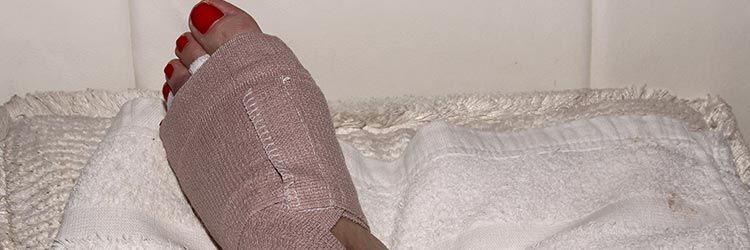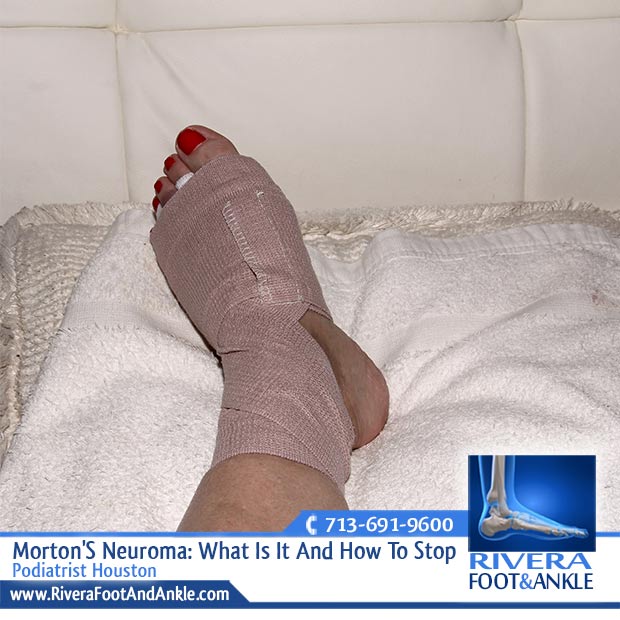
Morton'S Neuroma: What Is It And How To Stop The Pain
A neuroma is a thickening of nerve tissue that can develop in various parts of your body.
In the foot, the most common occurring neuroma develops at the base of the third and fourth toes. This condition is referred to as Morton's neuroma.
There are typically no physical signs of Morton's neuroma, such as a lump or a knot. Instead, symptoms may include:
A sharp, achy or burning pain in the ball of your foot
Numbness, tingling, or cramping in the toes or forefoot
Feeling as if you're standing on a pebble in your shoe
While the exact cause of Morton's neuroma is unknown, the growth of the neuroma seems to occur in response to injury, pressure or irritation to one of the nerves that lead to the toes. People with foot deformities such as bunions, hammertoes and flat feet are at higher risk for developing a neuroma. Women are also more likely to develop this condition, as wearing high-heels or narrow-toed shoes can increase pressure on the toes. Other potential causes are activities that involve repetitive irritation to the ball of the foot, such as running.
Morton's neuroma can make walking and performing normal activities difficult and painful. Treatment options vary with severity, and identifying the neuroma in its earliest stage of development is important to avoid more invasive treatments or surgical correction. Left untreated, neuromas tend to worsen, so it's always best to visit our office at the first sign of pain.
Early treatments aim to relieve or reduce pressure on the area around the affected toes. Depending on the severity of your neuroma, a podiatrist may recommend:
MODIFICATIONS TO FOOTWEAR. Wide-toed shoes relieve pressure on the neuroma.
SHOE INSERTS OR PADDING to provide support for the arch of the foot, which removes pressure from the nerve.
ANTI-INFLAMMATORY MEDICATIONS can help ease any pain and inflammation. Ask your doctor first.
ICING to reduce inflammation.
REST to lessen repetitive pressure on the neuroma.
In the most severe cases, surgery may be recommended for patients who do not respond to conservative treatments. We can help you determine the best approach for your specific condition.
Source: footandanklellp
RIVERA FOOT & ANKLE: At Orlando H.Rivera DPM, our priority is to deliver quality care to informed patients in a comfortable and convenient setting. When you have problems with your feet, you need to turn to a podiatrist who listens and responds… an experienced doctor who knows the field and can effectively diagnose and treat your needs… a friendly physician who counsels you on the best ways to maintain and improve your health. Our physician(s) meet all these criteria. Plus, you benefit from a dedicated team of trained professionals who give you the individualized attention you deserve.
Foot and Ankle, Dr. Orlando Rivera, Advanced Foot & Ankle Specialist, Foot and Ankle Podiatry, Houston Foot & Ankle Surgical, Treatment of Foot and Ankle, Foot & ankle specialists, Podiatrist in houston, podiatrist in houston, Orlando H.Rivera DPM, Houston Foot Doctor, Foot and Ankle Surgeon Houston, Ankle and Foot Specialist Houston, Podiatrist Houston, Foot Pain Houston.




